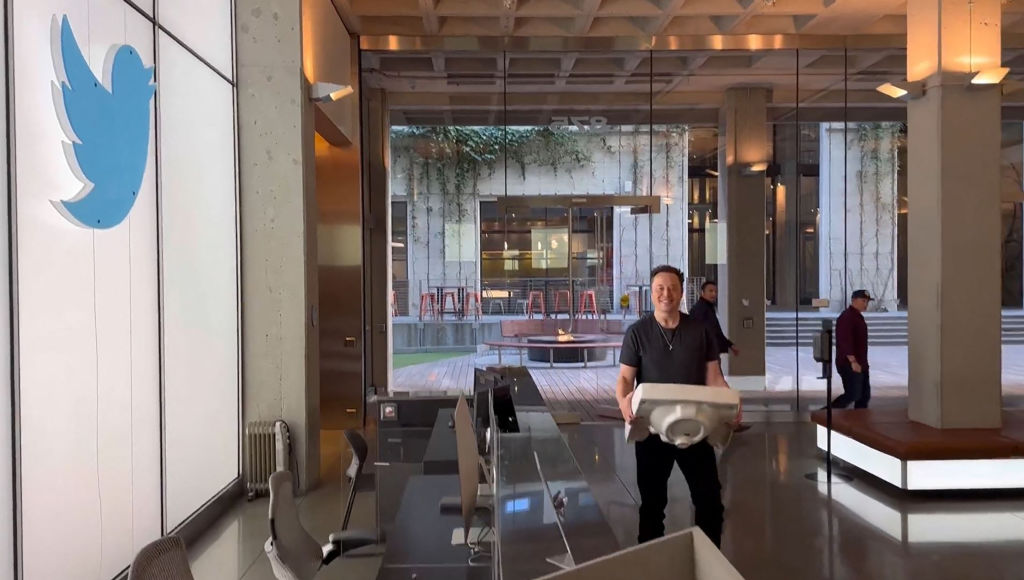Back in December, Elon Musk accused the Securities and Exchange Commission (SEC) of launching a purely politically motivated probe into his Twitter purchase. In a letter from his lawyer, Alex Spiro, Musk alleged that the SEC gave him 48 hours to accept a settlement or face fraud charges. Musk refused to pay the fine, demanding to know "who directed these actions," suspecting either former SEC Chair Gary Gensler or Joe Biden's White House.
Once the SEC lawsuit was filed in January, Musk's condemnation of the settlement was echoed in his claims that the SEC was "totally broken." These comments seemed to further his feud with the agency following a contentious 2018 Tesla settlement over Musk's tweets that resulted in the Supreme Court declining to hear Musk's arguments against his tweets being monitored by the SEC.
But after Donald Trump issued a February executive order declaring sweeping powers over independent agencies—including the SEC, which was accused of launching politically motivated investigations—it appeared that Musk might instead have been setting up the narrative to possibly get the probe squashed.
And while that still appears to be a possibility, it now seems that a persistent lawsuit raised by Twitter investors that's linked to the SEC probe may end up being the hurdle that possibly blocks Musk's efforts to evade the SEC's investigation. And once again, it's perhaps Musk's tweets that may force the billionaire to potentially end up paying fines to settle charges—recently deemed plausibly showing intent to deceive.
On Friday, US District Judge Andrew L. Carter, Jr., gave Twitter investors a big win by mostly denying Musk's motion to dismiss. The judge agreed that it seemed plausible that Musk and other defendants concocted a scheme to spend "over $2.6 billion to secretly purchase over 70 million shares" at an artificially lower price. Plaintiffs had argued the scheme saved Musk "over $200 million" while allegedly harming investors whose shares could have sold at higher prices during the time the supposed scheme was in action.
At the core of the lawsuit is a claim that Musk "deliberately" or "recklessly" delayed filing notices that would have alerted investors about his plans to take over Twitter before he purchased a large stake in the company. Part of the alleged deceptions included tweets where Musk appears to mislead the public about his intentions to buy Twitter.
Two of those tweets, Carter wrote, "warrant further discussion." In one, Musk responds to a user urging him to "just buy Twitter" and "change the bird logo to a doge" icon representing the cryptocurrency Dogecoin. That tweet can be reasonably read as "a statement meant to misdirect the public to think that buying Twitter was just a fantasy," Carter concluded, since Musk perhaps conveniently left out "critical information that he already owned nearly 10 percent of the company."
In the other tweet, Musk responded to a user asking if he would consider building his own social media platform, writing, "Am giving serious thought to this." This can be read "as an affirmative representation that Musk had no interest in Twitter, but was rather building out a rival platform," Carter wrote.
Musk had hoped to convince the court that these tweets were simply "teasing" and that his allegedly deceptive SEC filings were a "mistake." But Carter suggested that Twitter investors' allegations that the tweets were posted to "deceive the public about, or distract the public from looking further into" the secret trading scheme is "at least as compelling" as Musk's claims of "nonfraudulent intent."
And "more compelling" than Musk's claims he made a "mistake," Carter wrote, were investors' claims that Musk and other defendants intentionally delayed filing forms confirming Musk's intent to buy Twitter in order to acquire millions of shares at a lower price. Investors met their burden that the delay sent a "false pricing signal to the market," leading Carter to conclude "that the facts surrounding the trading strategy evince a deceptive act in furtherance of a scheme to defraud."
A loss in the investors' and SEC's suits could force Musk to disgorge any ill-gotten gains from the alleged scheme, estimated at $150 million, as well as potential civil penalties.
The SEC and Musk's X (formerly Twitter) did not respond to Ars' request to comment. Investors' lawyers declined to comment on the ongoing litigation.


